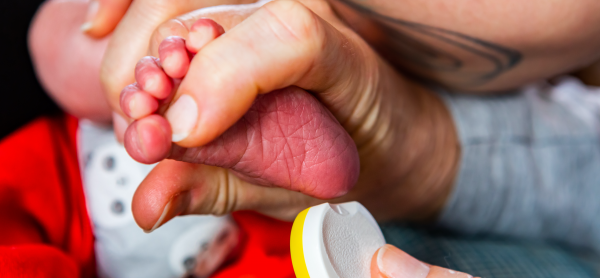Better Access Australia says the equivalent of what it costs to conduct COVID-19 tests for just 12 hours would be enough to fix Australia's newborn screening program and save lives each year.
The organisation has called for a change in the programs that are currently administered and funded by the individual states and territories.
It has called on Australia's political parties to commit to conducting a six-month independent review of the clinical evidence of the over 50 conditions already approved for newborn screening in much of the US and Europe. It said funding for the inclusion of these conditions should be part of the federal, state and territory public hospital agreements and that there should be a clear timetable for decisions.
"An opportunity to save children’s lives and prevent heartbreak rests in the hands of Federal politicians who are being urged to update Australia’s newborn screening program to ensure babies with up to 75 rare, yet treatable diseases are diagnosed at birth," said the organisation in a statement.
Better Access Australia chair Felicity McNeill PSM said the organisation is calling on all federal politicians to commit to change in the lead up to the next election.
“Australia’s newborn screening program remains stuck in the 1980s, with no new conditions added to the national program for three decades, which means doctors are often unable to take advantage of medical breakthroughs to save tiny lives,” she said.
“I urge Federal politicians to imagine they are a parent finding out that their baby has a rare disease months or years down the track, having missed out on diagnosis and life-saving treatment shortly after birth.
“Time to diagnosis matters. Every week that goes by without screening and diagnosis means vulnerable babies being ravaged by treatable conditions and lives lost. Australia urgently needs a 21st-century newborn screening program,” said Ms McNeill.
“Modernising the national screening program is an easy change for politicians to back that will dramatically improve countless lives and prevent heartbreak and suffering by enabling swift diagnosis and timely treatment.
“Testing all 300,000 newborns for an additional 50 conditions would cost just $3 million a year. This is small change for the Federal Government – the same amount we spend on COVID-19 testing every 12 hours.
“If Government can spend an eye-watering amount on COVID testing each day then they can afford the paltry sum required to diagnose tiny Australians so they can access life-saving treatments, including those that have just been added to the PBS,” said Ms McNeill.
Australia’s newborn screening programs provide a quick and definitive diagnosis for 25 conditions. However, the programs have failed to keep pace with medical advances or with overseas practice. In parts of the US, babies are screened for 80 genetic conditions, 76 of which have treatments.
According to the federal government's own Australian Institute of Health and Welfare, perinatal and congenital conditions are the leading cause of death for girls aged under 14 years and the third-highest for boys.
Better Access Australia said it is calling on politicians to ensure the national newborn screening program is robust and ends the "cruel lottery" of differences in newborn testing across Australia.
“It’s a travesty that a baby born in Tweed Heads can be screened at birth for Spinal Muscular Atrophy, but a baby born on the Gold Coast with this same condition will miss out on early diagnosis. No one should miss out on critical screening and treatment because of the state that they are born in,” said Ms McNeill.
Better Access Australia said the emergence of new and potentially curative therapies for hereditary conditions means now is the time for a change.
“Australians are being failed by an antiquated screening program which serves to delay diagnosis, causing irreparable damage, and worse still, is entirely avoidable. Enough is enough.
“Babies with rare diseases don’t have the luxury of time. We need a 21st-century national newborn screening program now because without diagnosis there is no treatment,” added Ms McNeill.
